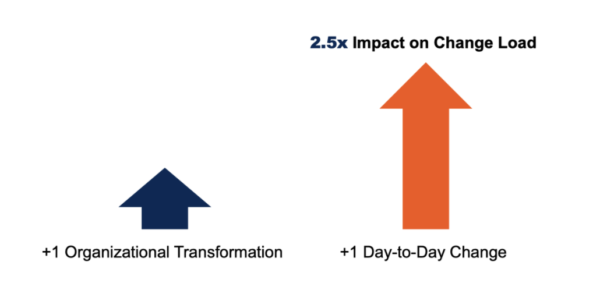
Your business's workplace culture is its personality. It creates trust, promotes inclusion and improves performance. Management and employees should share this responsibility. It must be consistent and clear about its expectations, communicated to the teams. Employees should also feel free to voice their concerns or problems.
The workplace culture defines the personality and character of your company.
The workplace culture is what determines whether the environment is pleasant or toxic. It is also a factor in employee retention and fit. When hiring new employees, it is crucial that they have the same cultural values you do. This can take a lot of time and is often considered a waste.
Workplace culture is a mix of rules and practices that defines how a business operates. It also reflects the type of people you hire, the way in which the work is done, and the overall direction of your company. It is important for every business owner to understand the importance of organizational culture and to make sure that it fits the needs of its employees.

It encourages inclusion
Inclusion is essential to a healthy work environment. This is why 80% of employees regard it as an important aspect of their job search. It is also beneficial for businesses. Inclusive cultures are more successful, more agile, and more innovative than those without them. A diverse workforce also tends to retain their employees longer, which helps reduce turnover.
SAP promotes diversity, inclusion, and other good practices. Focus on Insight offers virtual training for employees throughout the company. This program teaches diversity and supports employee driven events. The company sponsors Pride parades around world.
It improves performance
There are many options to improve a company's culture. Give your team autonomy. This is one of the best things you can do. According to the 2020 Global Culture Report 37% of employees say they enjoy a high degree of autonomy at work. Micromanagement can be detrimental to the work culture and hinder employees' potential success. In addition, good leaders set a good tone for their teams and respect their opinions and ideas. They should not give directives but mentor their employees and help them achieve their goals. This will help them become more loyal to their company.
One way to improve an organization's work culture is to find employees who share the same values. They will be more likely stay with the company, and they will be more likely reach organizational goals. Then, evaluate how well employees are aligned with the company's values and vision, and keep them informed about the company's progress. Feedback should be an integral part every day of work and should flow both in one direction. As employees experiment with new styles, managers should support them.

It attracted new staff
One of the most important aspects for employees is the working culture of a company. Glassdoor found that nearly two-thirds said that company culture is a key factor in deciding whether to apply for a job. Seventy three percent of respondents stated they wouldn't consider applying for a job if a company's culture didn’t align with their personal values. This was true of respondents from Germany, the UK, and America.
Employers' working culture can have a major impact on the retention and attraction of top talent. Employees should feel that their company values are shared by them. By creating a welcoming workplace, a company will become a magnet for talent. Employers will appreciate the perks offered. Rich benefits such as stock options, ample paid time off, and basic medical coverage can encourage employees to stay.
FAQ
Why is it so hard to make smart business decisions?
Complex business systems have many moving parts. Their leaders must manage multiple priorities, as well as dealing with uncertainty.
To make good decisions, you must understand how these factors affect the entire system.
You need to be clear about the roles and responsibilities of each system. Next, consider how each piece interacts with the others.
You need to ask yourself if your previous actions have led you to make unfounded assumptions. If so, it might be worth reexamining them.
You can always ask someone for help if you still have questions after all of this. You might find their perspective is different from yours and they may have insight that can help you find the solution.
What are the five management steps?
Each business has five stages: planning, execution and monitoring.
Setting goals for the future requires planning. It includes defining what you want to achieve and how you plan to do it.
Execution is when you actually execute the plans. They must be followed by all parties.
Monitoring is checking on progress towards achieving your objectives. This should involve regular reviews of performance against targets and budgets.
At the end of every year, reviews take place. They give you an opportunity to review the year and assess how it went. If not, changes may be made to improve the performance next time around.
Following the annual review, evaluation is done. It helps to identify what went well and what didn’t. It also provides feedback on the performance of people.
What is TQM?
The industrial revolution led to the birth and growth of the quality movement. Manufacturing companies realized they couldn't compete solely on price. They needed to improve quality and efficiency if they were going to remain competitive.
Management responded to the need to improve, and developed Total Quality Management (TQM). This focused on improving every aspect of an organization’s performance. It included continual improvement processes, employee involvement, customer satisfaction, and customer satisfaction.
What are the most common errors made by managers?
Managers can make their jobs more difficult than necessary.
They may not delegate enough responsibilities and not provide sufficient support.
A majority of managers lack the communication skills needed to motivate their team and lead them.
Some managers set unrealistic expectations for their staff.
Managers might try to solve every problem by themselves rather than delegating the responsibility.
What's the difference between a program and a project?
A program is permanent while a project can be temporary.
A project is usually defined by a clear goal and a set deadline.
It is usually done by a group that reports back to another person.
A program usually has a set of goals and objectives.
It is often done by one person.
Statistics
- As of 2020, personal bankers or tellers make an average of $32,620 per year, according to the BLS. (wgu.edu)
- This field is expected to grow about 7% by 2028, a bit faster than the national average for job growth. (wgu.edu)
- Your choice in Step 5 may very likely be the same or similar to the alternative you placed at the top of your list at the end of Step 4. (umassd.edu)
- UpCounsel accepts only the top 5 percent of lawyers on its site. (upcounsel.com)
- The average salary for financial advisors in 2021 is around $60,000 per year, with the top 10% of the profession making more than $111,000 per year. (wgu.edu)
External Links
How To
How can you apply the 5S in the office?
To make your workplace more efficient, organize everything. An organized workspace, clean desk and tidy room will make everyone more productive. The five S’s (Sort. Shine. Sweep. Separate. and Store) all work together to ensure that every inch is utilized efficiently and effectively. These steps will be covered one-by-one and how they can work in any kind of setting.
-
Sort. Get rid of clutter and papers so you don't have to waste time looking for the right item. This means putting things where you use them most often. You should keep it close to the area where you research or look up information. You need to think about whether or not you really have to keep it around.
-
Shine. Do not keep anything that could possibly cause damage or injury to others. You might have many pens and need to put them away. A pen holder is a great investment as you won't lose your pens.
-
Sweep. To prevent dirt buildup on furniture and other items, clean them regularly. To ensure that surfaces are clean and as neat as possible, you might consider investing in dusting equipment. You can also set aside an area to sweep and dust in order to keep your workstation clean.
-
Separate. It will help you save time and make it easier to dispose of your trash. To make it easier to throw away your trash without having to look for it, trash cans are often strategically placed throughout an office. You can take advantage of this location and place trash bags near each bin to make it easy to find what you are looking for.